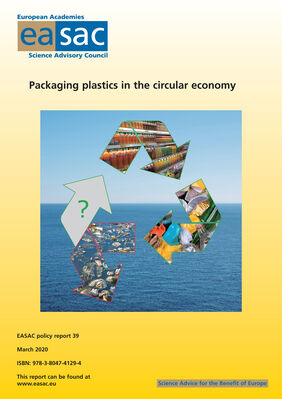Chemycal has been acquired by 3E
Learn MoreChemycal has been acquired by 3E
Learn MoreDiscover how Chemycal PRO helps you boosting your regulatory monitoring:

The European Academies of Science (EASAC) warns that current efforts to resolve the plastics crisis are ineffective and misleading. Policymakers and industry must address conflicts in the whole system, from production to end-of-life. “Reducing the leakage of millions of tons of plastic waste into the marine, terrestrial and freshwater environments is incompatible with banking on continued growth in the use of plastics”, says EASAC’s Prof. Michael Norton. EASAC’s latest report “Packaging Plastics in a Circular Economy” shows that fundamental and systemic reforms are required along the whole value chain, in order to slow and reverse damage to the environment, biodiversity and ultimately risks to human health.
Plastics are literally everywhere. Since the 1960’s global plastic production has increased from 1.5 million to almost 400 million tons per year. “Macro and microplastics are widespread on land, in the seas and are even found in the air. For many species, plastics are deadly, through entanglement and ingestion, while microplastics are transmitted throughout the food chain. In the history of mankind, the 21st century might actually be remembered as the ‘plastics age’”, says Norton.
CONTINUE READING ON easac.eu
2013 © MyChemicalMonitoring. ALL Rights Reserved. About Us | Terms and Conditions